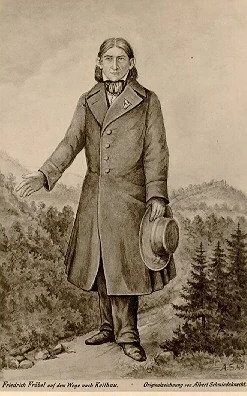Science in Kindergarten? Absolutely.
Friedrich Fröbel
Children possess an innate curiosity about the world. Just ask any parent of a kindergartener who has experienced the barrage of ‘why’ questions they are asked.
We need to cultivate and nourish this curiosity by providing stimulating experiences and resources to foster meaningful learning and critical thinking. Science activities provide a unique platform to stimulate these skills, while also allowing kindergarteners to develop problem-solving, observational, and communication abilities.
April 21 is the birthday of the German educator Friedrich Fröbel, who founded the first play and activity institute called kindergarten in 1837. (Kindergarten’s actually a mid-19th century German word literally meaning “children’s garden.”)
According to Fröbel, young children should follow and explore their interests. That’s why kindergartens should include science activities. When kids are engaged in science, they:
Learn by experiment. In this way, scientific thinking techniques will be learned.
Improves observation skills. Children learn how to analyze and synthesize.
Contribute to children in terms of language development and concept skills.
Produce ideas on many subjects and learn to approach the problems they face in a different way.
Fröbel was a visionary who believed in preserving and encouraging the magic and wonder in children. His philosophies on encouraging play and interest-based learning are still groundbreaking today. We think he would love SiE Books, especially since many have been tailored for the kindergarten level. Check out our offerings at https://www.scienceiselementary.org/books/store.
Some of our kindergarten students enjoying SiE Books.


